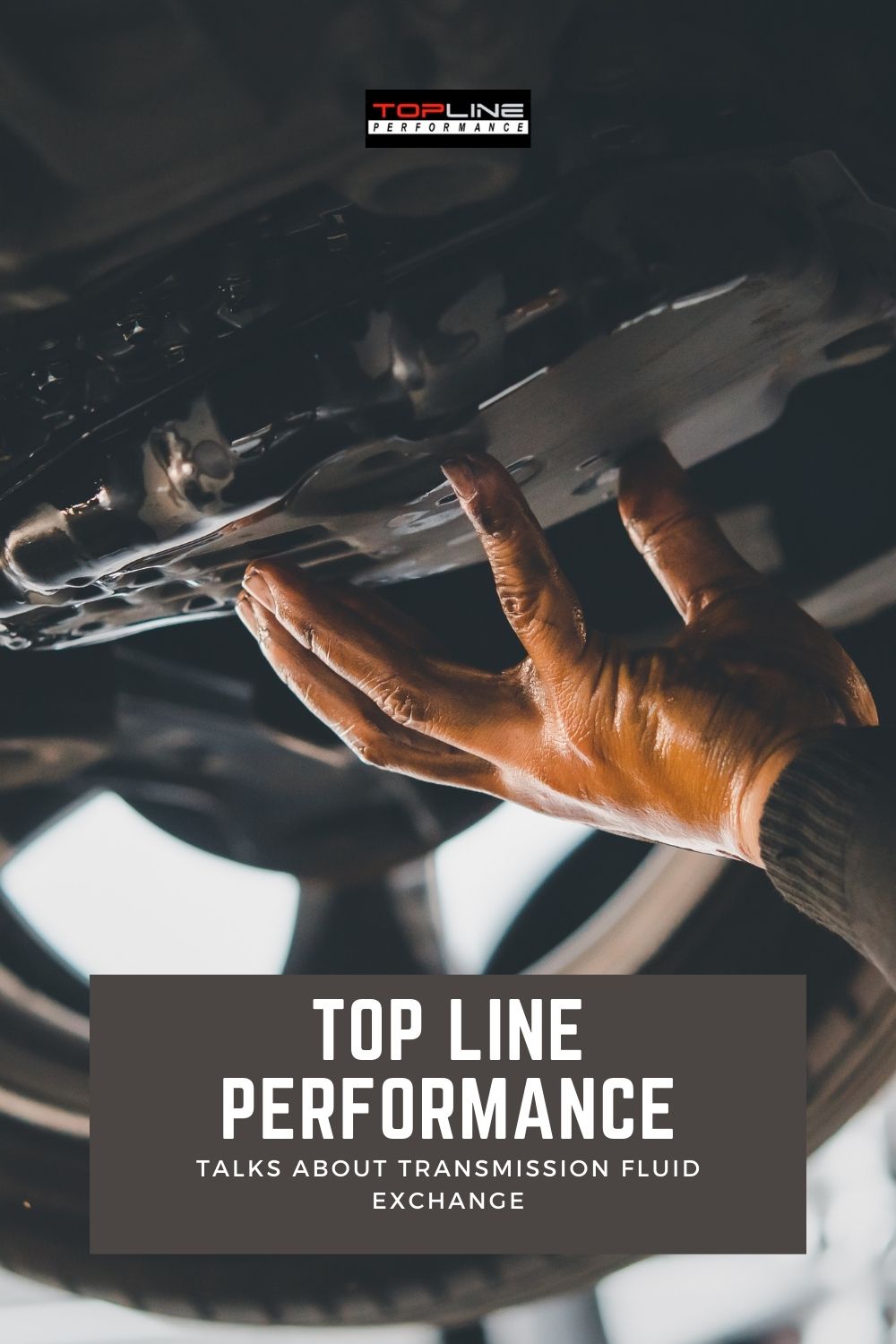
Top Line Performance, an auto repair shop in Huntington Beach CA, knows all too well that several important fluids are flowing throughout your vehicle; one of the most important, however, is your vehicle’s transmission fluid. It goes without saying, or even disputing, that in the question of whether or not you should change your transmission fluid; It’s always a resounding “Yes!” However, how often you should perform a transmission exchange on your car depends on the manufacturer and the vehicle itself and is open to discussion.
An Auto Repair Shop In Huntington Beach, CA Explains What Transmission Fluid Is
Transmission fluid is your vehicle’s lifeline, helping your vehicle effortlessly change gears without ripping them to pieces. Transmission fluid is a unique hydraulic-powered liquid that’s produced to cool and lubricate your transmission’s internal parts, allowing every gear shift to be smooth and easy. This fluid acts as a means to preserve the transmission system’s life, a very important job!
Should You Do Transmission Fluid Exchanges For Automatic And Manual Transmissions? And If So, What’s The Difference?
Whether it’s from an automatic or a manual vehicle, both types of transmissions have to perform transmission fluid exchanges. The main difference between the two is that automatic transmissions usually need more fluid exchanges since their systems produce more friction than manual transmissions.
A car with a manual transmission can go longer before a fluid exchange because they consist of a lot less moving parts and aren’t designed as elaborately as automatics are because automatic cars, in general, usually have more complex designs. An auto repair shop in Huntington Beach, CA, recommends you check your owner’s manual for further information about your car’s transmission fluid. If you don’t have the owner’s manual, speak to your car technician about an appropriate maintenance schedule for your car.
How Are Automatic And Manual Transmissions Built Separately?
On account of the fact that every transmission is unique, each one needs different maintenance intervals. Automatic and manual transmissions contrast in the way they hand over power from the engine: manual transmissions work with a clutch, while automatic transmissions operate a torque converter, which is a mechanism that uses oil flow to deliver power. Manual transmissions include the meshing and un-meshing of gears with each manual gear shift, whereas automatic transmissions are a controlled altering of gears that occurs automatically without any human involvement.
In most cases, automatic transmission fluid requires changing more frequently than manual transmission fluid. This is due to the fact that the system is more complicated and relies more on fluid to help change gears automatically.
Why Is It So Important To Perform A Transmission Fluid Exchange?
You shouldn’t neglect a transmission fluid exchange, as your car’s system needs it to prevent the damaging effects that could occur when old fluid is left on your vehicle’s transmission.
Transmission fluid consists of important additives, and these additives wear out over time. The additives supply the transmission and its gears with suitable lubrication while suppressing harmful debris and ensuring the system stays cool. When the additives run dry, debris is unleashed to float around and destroy. Debris puts lubrication and cooling into jeopardy and has the means to destroy a car’s transmission. That’s why it’s important to go to any local auto repair shops in Huntington Beach like Top Line Performance and not delay a transmission exchange, especially if you have waited long past your manual’s recommended time.
How Frequently Should You Have A Transmission Fluid Exchange?
On a positive note, you don’t have to change transmission fluid as often as motor oil. According to auto repair experts in Huntington Beach, the transmission fluid exchange intervals vary by make and model and whether the car is an automatic or manual transmission. Generally speaking, it’s recommended to have a transmission fluid exchange every 24,000 to 36,000 miles or every two to three years – whichever you reach first. You must also take into consideration that some new car manufacturers advise exchanging transmission fluid every 15,000 or even 100,000 miles. Some systems include feature-sealed systems, which don’t need a transmission exchange at all.
What Is The Advantage Of Having A Transmission Fluid Exchange Performed?
A transmission fluid exchange stops your transmission from slipping because of wear and tear, as well as helping a vehicle preserve its maneuverability.
When you exchange the old transmission fluid with new fluid, you’ll be back to driving a smooth-shifting, clean, and restored transmission system. The difference you will feel in your car after a transmission fluid exchange will be like night and day! Restoring the car’s system with friction modifying additives will make your gear shift be much more smooth.
Should You Get A Transmission Fluid Exchange On A Vehicle With Many Miles?
There are two ways of looking at transmission fluid exchange on vehicles with a lot of mileage. Some auto repair technicians in Huntington Beach argue that it isn’t a good idea to exchange transmission fluids on a car with a lot of miles when the vehicle’s transmission is working correctly. This belief comes from the idea that the fresh additive packages in new fluids eliminate varnish and deposits that “keep things together.”
Other car technicians consider new fluid with fresh additives to be exactly what your transmission requires to get back to work when the transmission in a high-mileage car is faulty.
Considering that a transmission fluid exchange is way cheaper than replacing or rebuilding a car’s transmission, it’s a good idea to service your car’s transmission at the intervals specified in your owner’s manual to prevent serious and expensive damage in the future. When you exchange your car’s transmission fluid, it does not cause issues that aren’t already there.
How Does Transmission Fluid Break Down, And What Occurs When It Does?
Similar to motor oil, transmission fluid encounters breakdown from the usual wear and tear. When a vehicle’s transmission has to shift gears, it creates friction, which in turn leads to heat generation, and that heat has to be transported away by the fluid. The more substantial the load is on the transmission, the more heat is produced and the hotter the fluid becomes. The hotter the fluid is, the more quickly the car will have a breakdown and the shorter its lifespan, and when this occurs, the fluid’s capability to lubricate critical parts declines.


